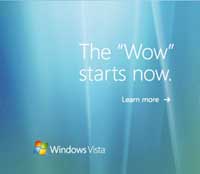 In a small way, this is a significant post: It’s the first one in which I’m going to refer to Windows Vista in the past tense. Which might be premature and/or unreasonable–Windows 7 won’t reach consumers until October 22nd, and millions of copies of Vista will be in use for years to come. But last week, I was writing a piece on Windows 7 for PC World, and started to refer to “the Windows Vista era”–and then I realized that it’s hard to make the case that the Vista age ever started. (Even today, two and a half years after Vista’s release, 63 percent of the people who visit Technologizer on a Windows PC do so on Windows XP, versus 27 percent who use Vista–and if anything, you guys should be more likely than the world at large to have adopted Vista.) Already, I’m thinking of Vista as part of the past–in part because I’m looking forward to Windows 7.
In a small way, this is a significant post: It’s the first one in which I’m going to refer to Windows Vista in the past tense. Which might be premature and/or unreasonable–Windows 7 won’t reach consumers until October 22nd, and millions of copies of Vista will be in use for years to come. But last week, I was writing a piece on Windows 7 for PC World, and started to refer to “the Windows Vista era”–and then I realized that it’s hard to make the case that the Vista age ever started. (Even today, two and a half years after Vista’s release, 63 percent of the people who visit Technologizer on a Windows PC do so on Windows XP, versus 27 percent who use Vista–and if anything, you guys should be more likely than the world at large to have adopted Vista.) Already, I’m thinking of Vista as part of the past–in part because I’m looking forward to Windows 7.
More than most technology products, Vista seems to be entirely different things to different perfectly intelligent people. Some say its bad rep is unfair. Others continue to trash it. But you’ll have trouble finding many people outside of Redmond city limits who’ll contend that Vista has been a hit.
What happened? It wasn’t one issue that hobbled Vista, it was all kinds of mishaps, none of which would have have been a disaster if it had been the only thing wrong. (In fact, most of them mirrored problems that had happened with earlier, far more successful versions of the OS, such as deadline problems and driver glitches.) Taken as a group, however, they confronted Windows Vista with both karmic and all-too-real difficulties that it never came close to resolving.

 InfoWorld’s Randall Kennedy has blogged about
InfoWorld’s Randall Kennedy has blogged about 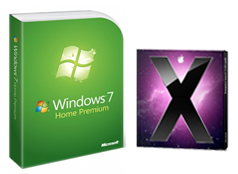 Daring Fireball’s John Gruber has posted a piece titled “
Daring Fireball’s John Gruber has posted a piece titled “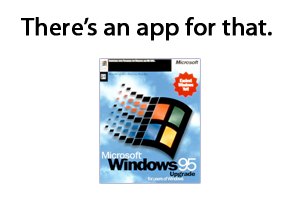 I continue to think of my iPhone not as a phone but as a personal computer. Which is why I continue to be so nonplussed about Apple’s
I continue to think of my iPhone not as a phone but as a personal computer. Which is why I continue to be so nonplussed about Apple’s 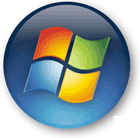 Microsoft has announced its fourth quarter financial results, and for those of us who are Microsoft customers rather than shareholders, the most striking factoid may be this: The company’s revenue from Windows
Microsoft has announced its fourth quarter financial results, and for those of us who are Microsoft customers rather than shareholders, the most striking factoid may be this: The company’s revenue from Windows 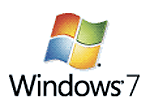 Windows 7 has been released to manufacturing, according to a
Windows 7 has been released to manufacturing, according to a  I persist in believing that we
I persist in believing that we  Daring Fireball’s John Gruber has an
Daring Fireball’s John Gruber has an